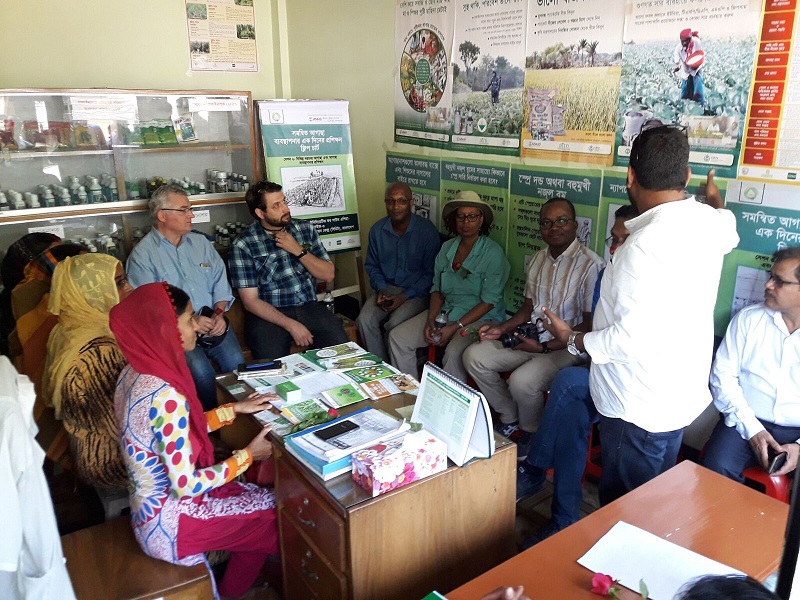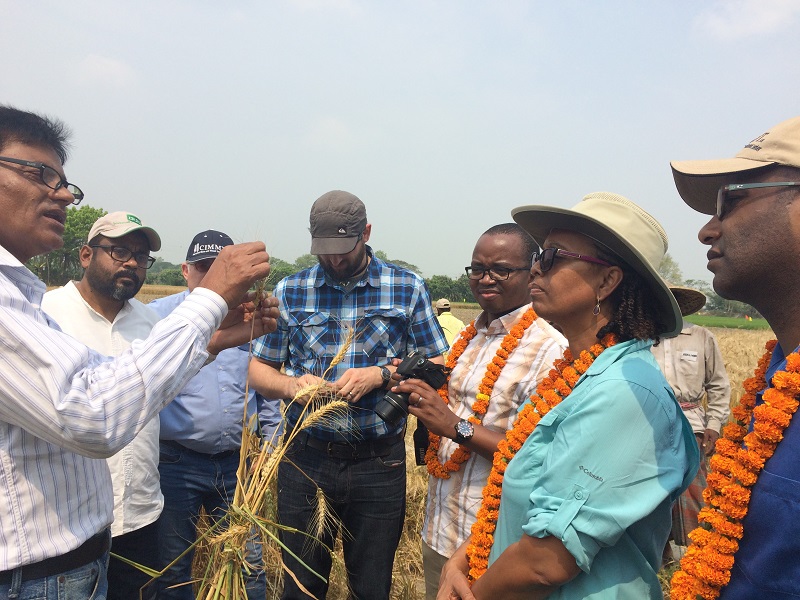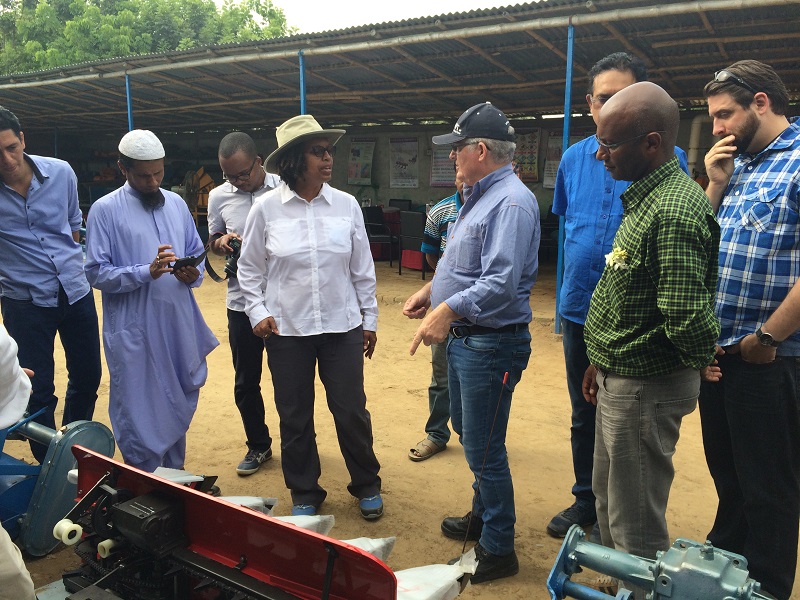
DHAKA, Bangladesh (CIMMYT) – A delegation of USAID representatives recently visited southern Bangladesh to learn about sustainable agriculture activities in the area and emerging challenges to wheat production.
Agriculture employs nearly two-thirds of Bangladesh’s population, with a majority of farmers owning land of less than half an acre, putting intense pressure on farmland while having to adapt to various environmental challenges from flooding and rising temperatures due to climate change, to increasing labor scarcity and production costs.
Despite these challenges, Bangladesh has successfully adopted sustainable technologies that conserve natural resources, improve productivity and increase profits, particularly with the two-wheeled tractor that is used by around 80 percent of farmers due to its versatility and ability to be fitted with a variety of additional equipment for planting, threshing and irrigation.
Challenges to widespread adoption of these innovations, however, remain a challenge.

“Much of this innovation has not reached farmers at scale because commercialization has been impeded by the lack of standardization,” according to Andrew McDonald, cropping systems agronomist at the International Maize and Wheat Improvement Center (CIMMYT) and project leader of the CIMMYT-led Cereal Systems Initiative for South Asia (CSISA). “Most workshops create a unique machine every time a new piece is fabricated, which drives up costs to both manufacture and repair the machinery. Quality control is also an issue.”
From March 16-19, the USAID delegation visited farmers and agricultural machinery service providers in the Barisal, Jessore and Jhenaidah districts of Bangladesh, seeing firsthand how CIMMYT is working with NGOs, public and private sector partners to ensure that machinery is scaled, available and affordable to the most marginalized farmers.
The delegation, comprising USAID Senior Program Analyst Charisse Adamson, Water and Irrigation Advisor Biniam Iyob and Food Security Advisor Christopher Chibwana, also learned about various sustainable technologies from axial flow pumps that irrigate crops at reduced cost, to two-wheeled tractors developed by Janata Engineering; a small-scale but rapidly growing agricultural machinery manufacturer, importer and dealer that has been working closely with CSISA over the past seven years.

The visitors also observed how farmers are growing healthy rice seedlings for higher yields in community based seedbeds. Farmer-friendly learning videos are jointly produced by the project with the Bangladesh Rice Research Institute and shown by the Agricultural Advisory Society, with over 35,000 farmers learning about healthy rice seedlings between November 2016 and January this year.
The USAID team then visited the Bangladesh Agricultural Research Institute in Jessore to learn about wheat blast mitigation efforts in the region, which emerged in early 2016. The spread of wheat blast could be devastating to South Asia, which is home to 300 million undernourished people and whose inhabitants consume over 100 million tons of wheat each year.
“I have learned so much…I think you are doing a great job in making research outputs sustainable through strategic value chain pathways,” said Iyob at the end of the visit.
CIMMYT launched the CSISA in 2009 to promote durable change at scale in South Asia’s cereal-based cropping systems. CIMMYT operates rural “innovation hubs” in Bangladesh, India and Nepal to increase the adoption of various resource-conserving and climate-resilient technologies, and to improve farmer access to market information and enterprise development. Learn more about CSISA’s impact here.
 Climate adaptation and mitigation
Climate adaptation and mitigation